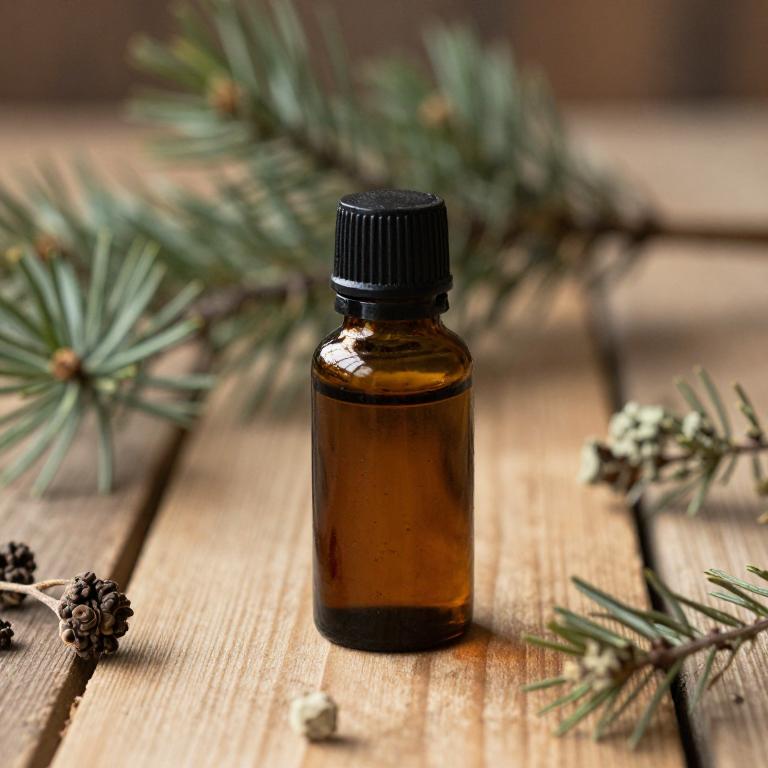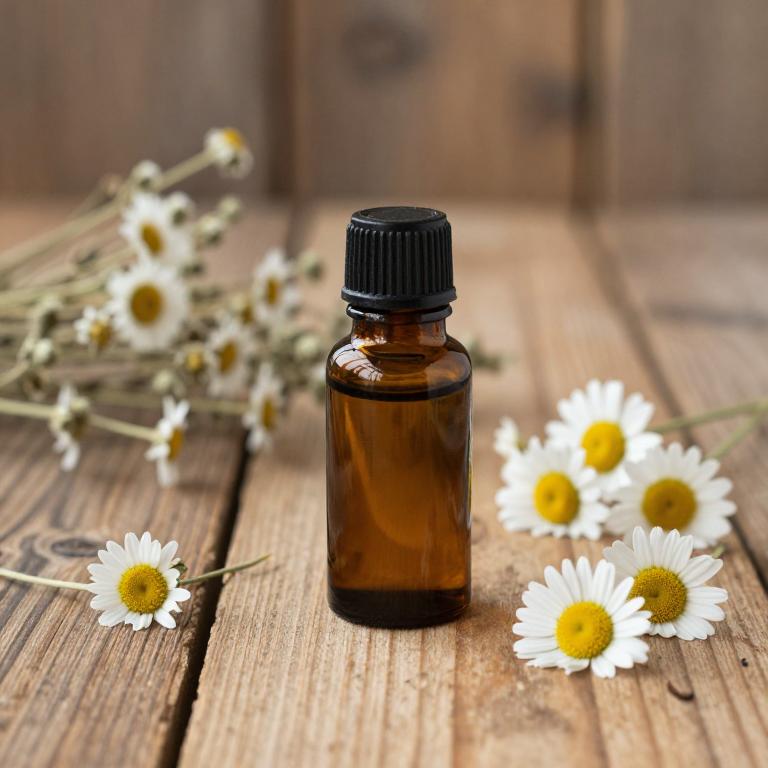10 Best Herbal Essential Oils For Ear Blockage

Herbal essential oils such as lavender, eucalyptus, and peppermint are often used to alleviate symptoms of ear blockage due to their natural decongestant and anti-inflammatory properties.
These oils can help reduce swelling in the Eustachian tube, which is a common cause of ear pressure and discomfort. When properly diluted with a carrier oil, they can be applied topically around the ears or used in steam inhalation to ease congestion. However, it is important to consult a healthcare professional before using essential oils, especially if the ear blockage is caused by an infection or injury.
While these oils may offer temporary relief, they should not replace medical treatment for persistent or severe ear issues.
Table of Contents
- 1. Eucalyptus (Eucalyptus globulus)
- 2. Scots pine (Pinus sylvestris)
- 3. Rosemary (Rosmarinus officinalis)
- 4. English lavender (Lavandula angustifolia)
- 5. Melaleuca (Melaleuca alternifolia)
- 6. Ginger (Zingiber officinale)
- 7. Peppermint (Mentha piperita)
- 8. Thyme (Thymus vulgaris)
- 9. Ceylon cinnamon (Cinnamomum verum)
- 10. Chamomile (Matricaria chamomilla)
1. Eucalyptus (Eucalyptus globulus)

Eucalyptus globulus, commonly known as eucalyptus oil, is a popular herbal essential oil derived from the leaves of the eucalyptus tree.
It is often used in aromatherapy and natural remedies for its decongestant and anti-inflammatory properties. Some people use eucalyptus oil to alleviate symptoms of ear blockage, believing it can help reduce congestion and improve airflow. However, it is important to note that using essential oils in the ears should be done with caution and under the guidance of a healthcare professional.
While there is limited scientific evidence supporting its effectiveness for ear blockage, some studies suggest that its components may have a mild effect on reducing inflammation and mucus buildup in the respiratory tract.
2. Scots pine (Pinus sylvestris)

Pinus sylvestris, commonly known as Scots pine, produces an essential oil that has been traditionally used for its aromatic and therapeutic properties.
This herbal essential oil is often valued for its ability to support respiratory health and may help alleviate symptoms of ear blockage by promoting drainage and reducing inflammation. The oil contains compounds such as alpha-pinene and beta-pinene, which have expectorant and anti-inflammatory effects that can aid in clearing congestion. When used in a diffuser or applied topically with a carrier oil, it may help soothe the ear area and relieve pressure associated with blockage.
However, it is important to consult a healthcare professional before using essential oils for medical conditions like ear blockage to ensure safety and effectiveness.
3. Rosemary (Rosmarinus officinalis)

Rosmarinus officinalis, commonly known as rosemary, produces an essential oil that has been traditionally used for its aromatic and therapeutic properties.
This oil is known for its ability to improve circulation and reduce inflammation, which may help alleviate symptoms of ear blockage by promoting drainage and reducing congestion. The warming properties of rosemary essential oil can help stimulate blood flow to the ear area, potentially easing pressure and discomfort. When used in a diffuser or applied topically with a carrier oil, it may support respiratory and ear health.
However, it is important to consult a healthcare professional before using essential oils for ear-related issues, especially if there is an underlying medical condition or infection.
4. English lavender (Lavandula angustifolia)

Lavandula angustifolia, commonly known as English lavender, is often used in aromatherapy for its calming and anti-inflammatory properties.
Its essential oil, extracted through steam distillation, contains compounds like linalool and linalyl acetate, which are believed to have soothing effects on the body. Some individuals use lavender essential oil to alleviate symptoms of ear blockage by applying it topically or inhaling its vapors, though scientific evidence supporting its efficacy for this specific use is limited. It is important to dilute the essential oil properly before use and consult a healthcare professional, especially if the ear blockage persists or is accompanied by pain.
While lavender oil may provide some relief for mild ear discomfort, it should not replace medical treatment for more serious conditions.
5. Melaleuca (Melaleuca alternifolia)

Melaleuca alternifolia, commonly known as tea tree oil, is a potent essential oil derived from the leaves of the Melaleuca alternifolia plant, native to Australia.
While it is widely recognized for its antimicrobial properties and use in treating skin infections, it is not typically recommended for use in the ears due to the risk of irritation or damage to the delicate ear canal. However, some individuals may use diluted tea tree oil as a natural remedy for ear blockage, believing it can help reduce inflammation or combat infections. It is important to note that improper use can lead to adverse effects, including ear pain or hearing loss.
Therefore, it is advisable to consult a healthcare professional before using any essential oil for ear-related issues.
6. Ginger (Zingiber officinale)

Zingiber officinale, commonly known as ginger, contains essential oils that have been traditionally used for their anti-inflammatory and decongestant properties.
These essential oils, derived from the root of the plant, may help alleviate symptoms of ear blockage by reducing swelling in the Eustachian tube and improving fluid drainage. The active compounds in ginger essential oils, such as gingerol and shogaol, possess antimicrobial and analgesic effects that can support overall ear health. While some studies suggest potential benefits, it is important to consult a healthcare professional before using ginger essential oils for ear-related issues, as improper use could lead to irritation or other complications.
Overall, ginger essential oils may serve as a complementary therapy for mild ear blockage, though they should not replace medical treatment.
7. Peppermint (Mentha piperita)

Mentha piperita, commonly known as peppermint, is a popular herb used in the production of essential oils that are often utilized for their cooling and invigorating properties.
The essential oil of peppermint is known to contain compounds like menthol and limonene, which can help alleviate symptoms of ear blockage by reducing inflammation and improving blood circulation. When applied topically, peppermint oil may help relieve pressure in the ears, making it a natural remedy for conditions like Eustachian tube dysfunction. However, it is important to dilute the essential oil with a carrier oil before applying it to the skin to avoid irritation.
While peppermint oil may offer some relief, it should not replace professional medical advice, especially for persistent or severe ear blockage.
8. Thyme (Thymus vulgaris)

Thymus vulgaris, commonly known as thyme, is a popular herb used in aromatherapy for its potent essential oils, which are believed to offer various health benefits.
The essential oil of thyme contains compounds like thymol and carvacrol, which have antimicrobial and anti-inflammatory properties. Some people use thyme essential oil for ear blockage by applying it topically or through steam inhalation, though it should be diluted properly to avoid skin irritation. While there is limited scientific evidence supporting its effectiveness for ear issues, many natural health practitioners recommend it as a complementary therapy.
It is important to consult a healthcare professional before using thyme essential oil for ear-related concerns, especially if there is an underlying infection or condition.
9. Ceylon cinnamon (Cinnamomum verum)

Cinnamomum verum, commonly known as true cinnamon, contains essential oils that have been traditionally used for their warming and antimicrobial properties.
These oils, derived from the bark of the tree, contain compounds like cinnamaldehyde and eugenol, which may help reduce inflammation and improve circulation. While there is limited scientific research specifically on using cinnamon essential oils for ear blockage, some anecdotal evidence suggests that its warming properties might help alleviate discomfort associated with ear congestion. It is important to note that essential oils should never be applied directly to the ear canal and should always be diluted with a carrier oil before use.
Due to the potential for irritation, it is advisable to consult a healthcare professional before using cinnamon essential oils for ear-related issues.
10. Chamomile (Matricaria chamomilla)

Matricaria chamomilla, commonly known as German chamomile, is a versatile herb used in aromatherapy and natural remedies for various health issues, including ear blockage.
Its essential oil contains compounds like alpha-bisabolol and chamazulene, which possess anti-inflammatory and antispasmodic properties that may help reduce swelling and discomfort in the ear canal. Some studies suggest that inhaling chamomile essential oil can help alleviate symptoms of ear blockage by promoting relaxation and reducing mucus buildup. However, it is important to consult a healthcare professional before using essential oils, especially for children or individuals with chronic ear conditions.
When used properly, chamomile essential oil can be a gentle and effective complementary treatment for mild ear blockage.